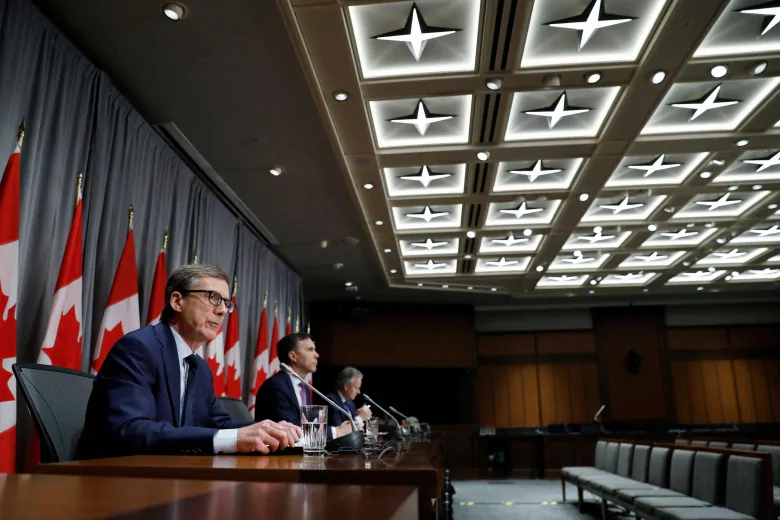Even if the medium- and long-term uncertainty remains for both the COVID-19 illness and the Canadian economy, fresh trade and jobs data this week will give a firmer grip on what is happening in the present.

When we in the media ask for questions from the audience on the COVID-19 crisis, one that pops up near the top is “when will it all end?“
Whether addressing the disease or its economic effect, while experts try to offer the latest evidence to help us understand, the unsatisfying honest answer is that no one really knows for sure.
Even as we wait for fresh Canadian trade and jobs numbers this week, in many ways the economic answer to the question is the more difficult of the two. That’s because the economic result depends not just on the unpredictable unfolding medical situation, but also on the results of attempts by governments, businesses and the rest of us to cope.
We have repeatedly seen anger expressed at the fact that medical officials or political and economic leaders have got it wrong. But in a health and economic crisis unlike anything we have experienced before, the landscape is constantly changing.
WATCH | Modelling suggests we’re in it for the long haul:
What mathematical simulations tell us about how the COVID-19 pandemic will play in the real world. 5:04
Using the best evidence
“The thing is, we’re working with the best evidence that we have at the time,” said infectious disease specialist Sumon Chakrabarty on CBC Radio’s The Current last week.
On Friday, recession arbiter, the C.D.Howe Institute’s Business Cycle Council, declared that Canada is officially in a recession. Growth figures from February released last week showed the economy was already slowing even before the Canadian lockdown had begun.
Echoing Chakrabarty’s comments on the medical outlook, the newly appointed next head of Canada’s central bank, Tiff Macklem, took a similar stance from the economic point of view.
“The bank has to be humble about what it doesn’t know,” he said, responding to reporters’ questions on Friday in an empty auditorium.
And as events unfold, Macklem warned that the Bank of Canada’s economists will be forced to forecast based on a range of possible outcomes that will probably change over time.


